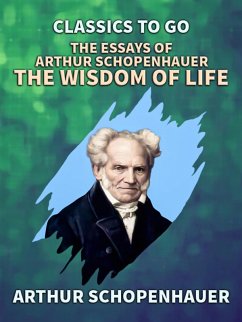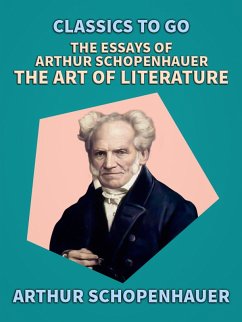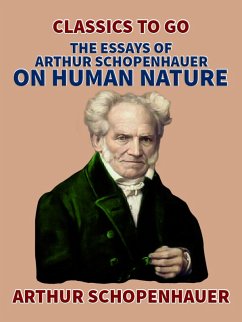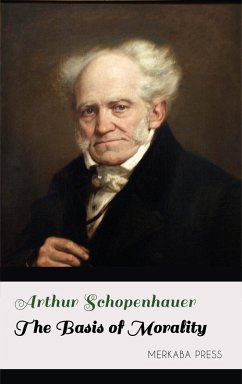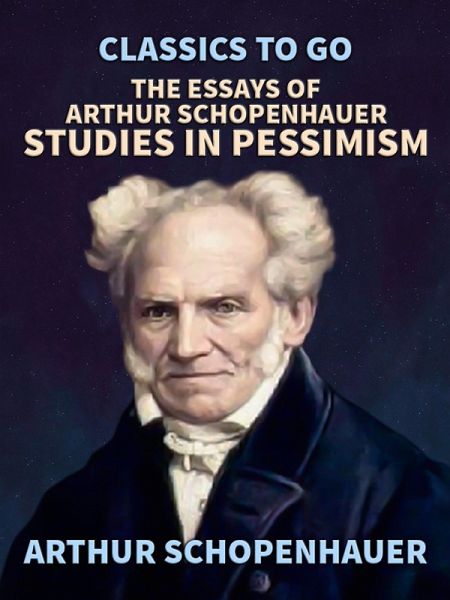
The Essays of Arthur Schopenhauer; Studies in Pessimism (eBook, ePUB)
Versandkostenfrei!
Sofort per Download lieferbar
1,99 €
inkl. MwSt.
Weitere Ausgaben:

PAYBACK Punkte
1 °P sammeln!
The Essays here presented form a further selection from Schopenhauer''s Parerga, brought together under a title which is not to be found in the original, and does not claim to apply to every chapter in the volume. The first essay is, in the main, a rendering of the philosopher''s remarks under the heading of Nachträge zur Lehre vom Leiden der Welt, together with certain parts of another section entitled Nachträge zur Lehre von der Bejahung und Verneinung des Willens zum Leben. Such omissions as I have made are directed chiefly by the desire to avoid repeating arguments already familiar to re...
The Essays here presented form a further selection from Schopenhauer''s Parerga, brought together under a title which is not to be found in the original, and does not claim to apply to every chapter in the volume. The first essay is, in the main, a rendering of the philosopher''s remarks under the heading of Nachträge zur Lehre vom Leiden der Welt, together with certain parts of another section entitled Nachträge zur Lehre von der Bejahung und Verneinung des Willens zum Leben. Such omissions as I have made are directed chiefly by the desire to avoid repeating arguments already familiar to readers of the other volumes in this series.
Dieser Download kann aus rechtlichen Gründen nur mit Rechnungsadresse in A, B, BG, CY, CZ, D, DK, EW, E, FIN, F, GR, HR, H, IRL, I, LT, L, LR, M, NL, PL, P, R, S, SLO, SK ausgeliefert werden.





